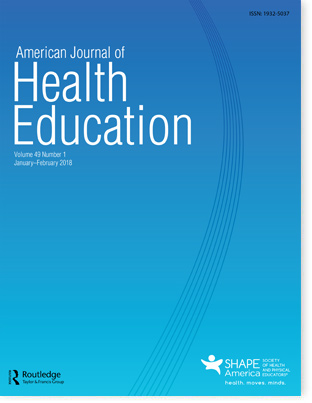 AJHE Table of Contents
AJHE Table of Contents
Relationship Between Health Risk and School Attendance Among Adolescents
Erin E. Centeio, Jessica Duncan Cance, Jeanne M. Barcelona, and Darla M. Castelli
 Unexcused school absences among adolescents are a prevalent and significant problem in the United States. Though any absence negatively impacts academic success, unexcused absences are more strongly associated with lower academic achievement than excused absences. Although teacher effectiveness is a primary determinant of student success, absenteeism is also associated with lower achievement in math, reading, and general knowledge. When adolescents are absent from school without an excuse, they are less likely to succeed academically and are more likely to engage in risk behaviors when compared with adolescents who are absent with an excuse. Further, because school funding in many states is determined in part by average daily attendance, unexcused absences can impact the financial resources of a school, influencing the classroom environment for all students.
Unexcused school absences among adolescents are a prevalent and significant problem in the United States. Though any absence negatively impacts academic success, unexcused absences are more strongly associated with lower academic achievement than excused absences. Although teacher effectiveness is a primary determinant of student success, absenteeism is also associated with lower achievement in math, reading, and general knowledge. When adolescents are absent from school without an excuse, they are less likely to succeed academically and are more likely to engage in risk behaviors when compared with adolescents who are absent with an excuse. Further, because school funding in many states is determined in part by average daily attendance, unexcused absences can impact the financial resources of a school, influencing the classroom environment for all students.
Workplace absenteeism and its relationship to physical fitness and other health behaviors have been well studied among adults, but little is known about the role that cardiovascular fitness, as a proxy measure of health status, may play in regards to adolescent absenteeism. There is growing evidence of the positive benefits of physical activity on cognitive functioning and academic outcomes. Specifically, positive associations have been found between physical activity engagement and improved cardiovascular fitness leading to an increase in cognitive control of working memory and increased cognitive performance. A meta-analytic review of 59 studies from 1947 to 2009 confirmed that aerobic exercise, over muscular or resistance, had the greatest effect on children’s achievement and cognitive outcomes.
However, most of the research on such cognitive benefits of cardiovascular fitness has neglected to account for the possible effects of physical fitness on school attendance, particularly the risk behavior of unexcused absences (eg, skipping school), which in turn mediates academic achievement.
To read the rest of this article,
click here to download a pdf.